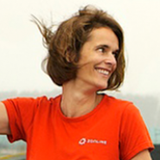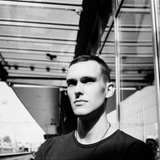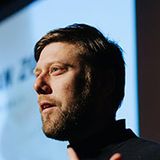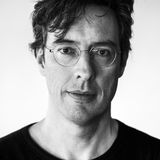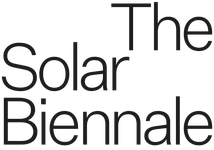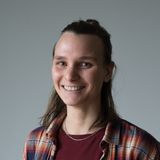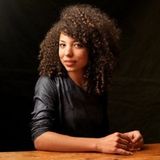During this third Solar Lecture by The Solar Biennale we will explore the relation between solar and our environment. How positive is the impact of solar on our planet when we cover what is left of our natural surroundings with vast solar fields? How does this affect our landscape? We’ll also explore how sustainable solar panels are. How and of what resources are they made and can they be recycled and reused? What are the latest solar technologies that are developed with sustainability and aesthetics in mind? How can we guarantee that nature’s health is protected and solar technology does not become the asbestos of the 21st century? Will the increasing attention for legal safeguards, like the most recent Indian court decision that nature has a legal status, be a solution? What kind of role does design play here?
The sun, our source of life, has become the cheapest source of energy today. Yet designing a fossil-free world for all, powered by the sun, requires more than technocratic solutionism and one-size-fits-all panels. The Solar Biennale envisions and critically reflects on the future of solar energy in a series of four Solar Lectures at Pakhuis de Zwijger. In these sessions Lynn Zebeda will discuss questions about solar energy with her guests and will invite you, the audience, to join the conversation.
About the speakers
Roebyem Anders has been involved with sustainability before the term was invented. She studied Economics and Political Science and went to London to study Environmental Economics. She worked on clean energy at the VI/Institute for Environmental Science in The Netherlands, the Environment Department at the World Bank, the Renewable Energy Unit of IEA (International Energy Agency) and at BP Alternative Energy. She also helped the Dutch Newspaper Telegraaf become the most sustainable media company in The Netherlands. Roebyem is a strong advocate of sustainability and she has been the co-founder and director of Sungevity International, a leading home solar company, for over 12 years. Roebyem is a social entrepreneur and a new type of solar activist who predicted the current Rooftop Revolution over a decade ago: powering your life with sunshine is the new normal. She is cofounder of several foundations including the School Rooftop Revolution, and the Social Housing Tenant Revolution. Most recently she founded the world’s first solar orphanage ZonNext, with the aim to squeeze the last kilowatt hour out of every solar panel and reduce unnecessary waste. As part of the Fair Solar network she is a strong advocate of improving human rights and the environmental footprint of the solar sector. Besides her love for solar, she is also a strong advocate for Citizens Committee’s on Climate Change, and co-founded Bureau Burgerberaad.
Siemen Brinksman is the founder of Biosphere Solar, a startup that works on bringing fair and circular standards to the solar industry. With an open-source design process, they are trying to ‘hack’ the solar industry and make fair and circular design the norm. The startup is currently developing the first marketable product, with the aim of starting pilot production and certification in 2023.
Hendrik-Jan Grievink is designer and creative lead at Next Nature. Among all projects Hendrik-Jan has worked on are NANO supermarket and the In Vitro Meat Cookbook. Hendrik-Jan has initiated projects such as the Pyramid of Technology and Reprodutopia. He currently works on a Checklist for Technology Privilege. With this checklist, he aims to start a dialogue about inequalities caused by technology so that we can help each other to take steps towards a more fair and just world.
Michiel Raaphorst is architect-director and co-founder of V8 Architects. Based in Rotterdam, the firm is known for their characterful, storytelling designs. V8 consistently seeks to strike a balance between human beings and creating a sustainable, pleasant living environment. With a dedicated team the firm works on commercial projects, housing, public buildings and infrastructure, in an international context and at various scales. As the architect of the Netherlands pavilion for EXPO2020, V8 Architects designed a fully sustainable and circular building – a so called biotope – that allows visitors to experience the connection between water, energy and food in a sensory way. Water will be harvested out of the air, energy is collected from the sun and edible plants and oyster mushrooms will be grown inside the pavilion. All for visitors to see, smell and taste. A unique story uniting Dutch expertise with Dubai environment and culture. Other key projects of V8 include amongst others, the Cooltoren (height 155 meters – Rotterdam)’, KPN headquarters (offices – Rotterdam), Sijthoff (shopping mall – The Hague), Villa K6 (private villa – Amsterdam) and Mediahaven (office and television studio’s – Amsterdam).

